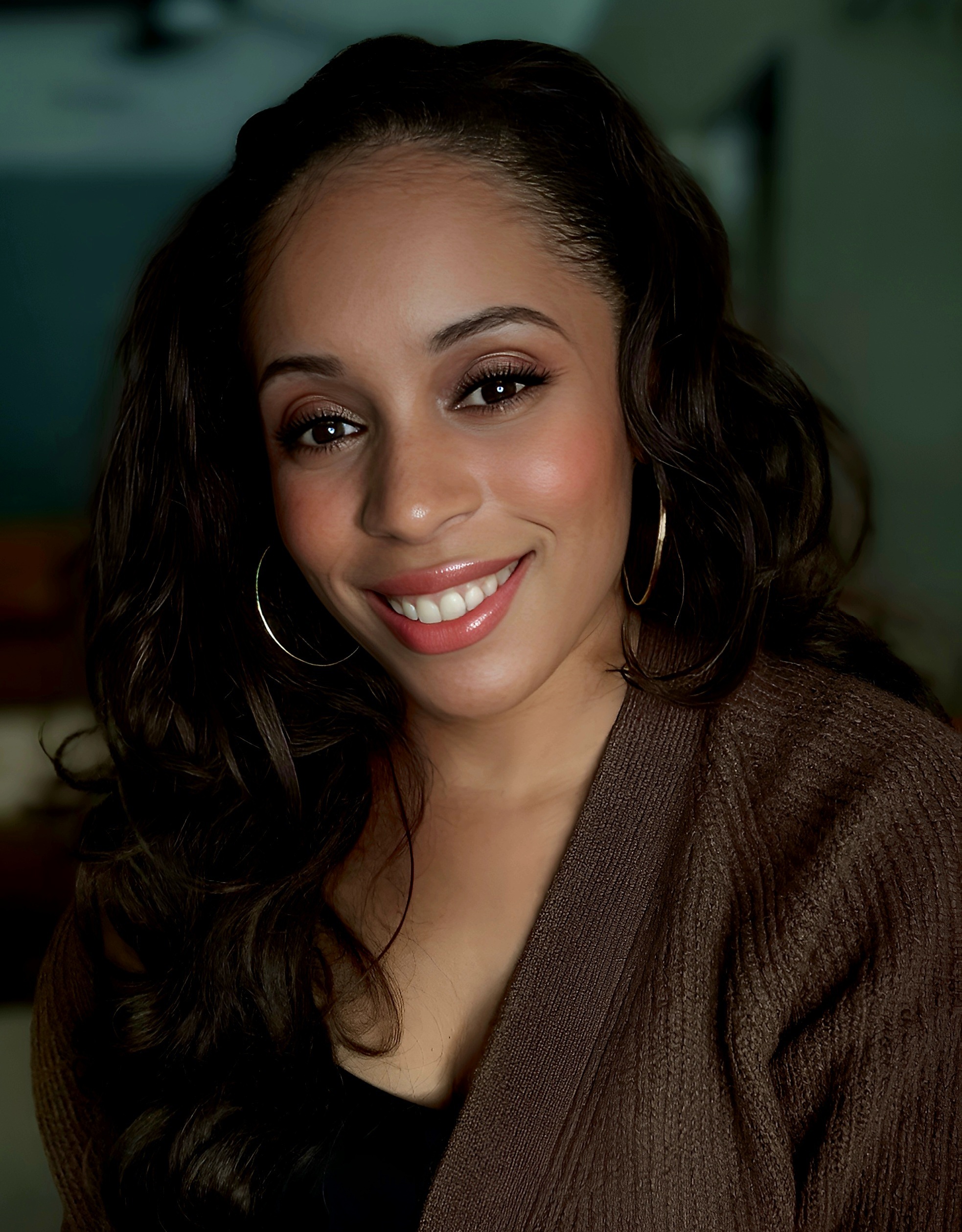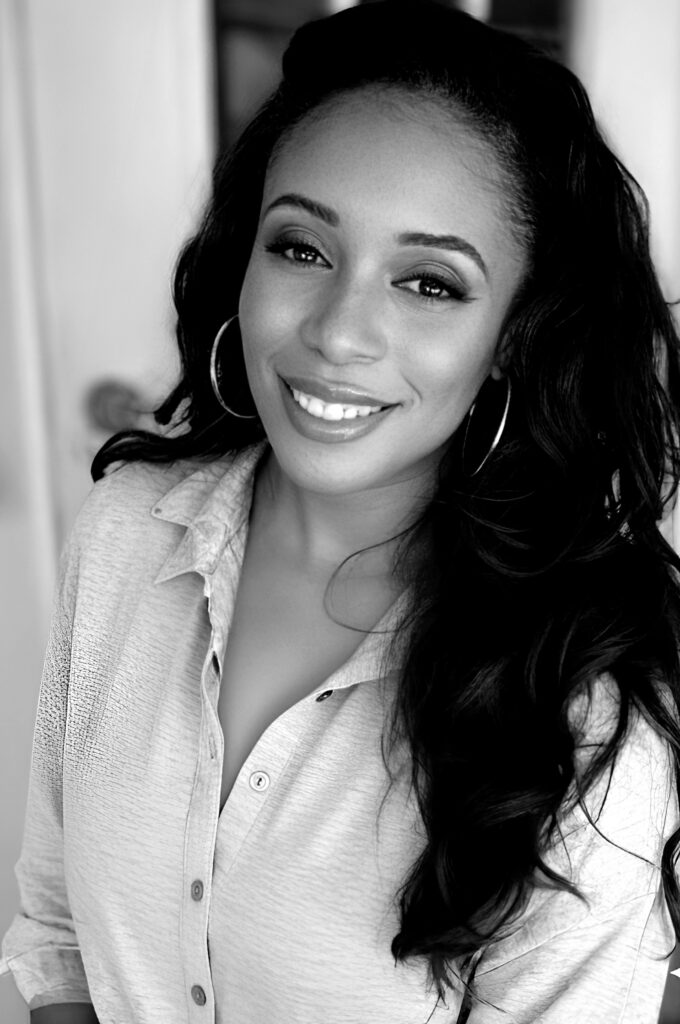
The Way Forward Is Already in You: How Shamorow Dabney, CEO of Charli Rose Co Is Recalibrating
By CammaneX Editorial
When the body slows before the mind is ready, something sacred happens. The world narrows to what is essential — breath, light, touch, prayer — and in that narrowing, truth expands. In July 2018, at the height of her career, Shamorow Dabney received a call that would become a quiet before and after. She was a systems architect — a strategist known for her precision, her command of complexity, her ability to hold an entire organization’s nervous system in her mind and make it flow. A week away from a multimillion-dollar go-live of an electronic health record project, she was in her stride — and then, the diagnosis: a rare brain tumor. Immediate surgery required. She did not cry. The tumor pressed on the part of her brain that numbed emotion. So, in a moment most would meet with panic, she simply said, “Okay, thanks,” and hung up. There was no drama, no unraveling. Only stillness. And a sharp, strange clarity. What she did not yet know was that clarity — that unnerving quiet — was the beginning of her recalibration.
Brooklyn Beginnings
To understand how she met crisis with composure, you have to begin in Brooklyn, New York — in a Guyanese household that was equal parts love, laughter, and grit. Her parents, rooted in the Caribbean rhythm of life, built joy like a fortress around their children. The world outside could be harsh, but inside those walls, there was music. There was food. There was honesty.
“Realness,” she says, “was our family currency. My parents made sure we were never defined by the grit of our surroundings. They gave us permission to be fully ourselves.” Saturday mornings were her first lessons in leadership. Bleach in the air, soca on the radio, siblings grumbling as they scrubbed floors“I used to dread it,” she laughs, “but afterward, there was breakfast, then Blockbuster. My parents knew exactly what they were doing — they transformed obligation into connection.” It was an early education in energy: how to sense resistance, how to redirect it, how to lead people toward joy without force. Even as a child, she was a quiet observer — the one who noticed everything, the one who read the room before the words. “I saw patterns,” she says. “The inefficiencies, the missed opportunities, the emotional undercurrents.” The world to her was a process map waiting to be refined — but one pulsing with human emotion.

“Every small thing felt monumental. Standing without help. Writing a full sentence. Remembering the word for spoon.”
Women Who Gave Everything
Her grandmothers were the embodiment of resilience. Women who had little in material wealth but gave everything in love. “They opened their doors to anyone who needed a place to stay,” she recalls. “They fed whoever came hungry. They loved people society often ignored.” They taught her that compassion wasn’t conditional, that love wasn’t something to ration. It was something to pour. She remembers watching them — worn hands, tired faces, yet a light that refused to dim. “They showed me that resilience is not about how much you can hold. It’s about how much you can give and still stay open.” That lesson would become her compass, guiding her through corporate corridors and boardrooms where empathy was often seen as weakness.
The Architecture of Presence
When she entered the world of strategy and operations, it felt like home. “The corporate world,” she says, “was just another system to understand. I could see it — every inefficiency, every bottleneck, every opportunity to bring alignment.” Her logic was precise, her methods data-driven. But beneath it all was intuition — the same discernment she had as a child, now refined through experience. “I learned that systems fail not because of bad design, but because people feel unsafe inside them,” she says. That insight changed everything. She became known not just for operational excellence, but for energetic intelligence. She could walk into a room and sense whether a team was in trust or tension. “Quiet leadership,” she says, “is creating clarity without noise. It’s the ability to anchor a room without raising your voice.” When she led the implementation of a new electronic health record in a hospital system — a change that terrified medical staff who feared for patient safety — she didn’t push. She listened. She sat with nurses, doctors, administrators. “Their resistance wasn’t about change,” she explains. “It was about care. They wanted to protect the patient.”By meeting that fear with empathy, she transformed it into collaboration. “Leadership,” she says softly, “is not moving people faster. It’s making them feel safe enough to move forward.”
The Collapse and the Call
But the human body is its own system — one that eventually demands recalibration. When the diagnosis came, it was like an architect discovering a fault line in her own blueprint. She could not out-think it, out-plan it, or outwork it. “The hardest part wasn’t the surgery,” she recalls. “It was what came after — the stillness.” In recovery, she met herself again. The woman who had led with precision was now relearning how to stand, how to speak, how to name objects, how to rest without guilt. “Every small thing felt monumental. Standing without help. Writing a full sentence. Remembering the word for spoon.” Each act of restoration became a prayer. “The beauty wasn’t in the absence of pain,” she says. “It was in how God used the pain to renew me.”
Rebuilding from the Inside Out
When she eventually returned to work, she was no longer the same. The metrics had changed. “Facing my mortality showed me that power isn’t about titles or visibility,” she says. “It’s presence. It’s the ability to be fully here — to listen deeply, to speak with intention, to make others feel seen.” From that awareness, Charli Rōse Co. was born — a consultancy grounded in empathy, clarity, and sustainable leadership. “I teach leaders to expand without burning out,” she explains. “To align their growth with their peace.” Her clients learn that boundaries are not barriers; they’re sacred architecture. That rest is not retreat; it’s refinement. Rebuilding from the inside out, she says, “means tending to your inner life before touching the outer world. Checking in with yourself before checking off the to-do list. Feeding your mind with what expands, not drains.” It’s strategy as soul work.
The Morning Practice
Each morning begins the same way — before emails, before calls, before anyone else’s agenda enters the room. Silence. “No phone. No email. Just me, God, and my thoughts,” she says. “That quiet shapes my energy for the day. It determines how I show up.” Stillness has become her sanctuary. It’s where she protects her energy — not by giving less, but by giving from fullness. “You can’t pour from an empty cup,” she says. “Protecting your peace is not selfish; it’s stewardship.”
The Recalibration
Her story, like all stories of transformation, is not about loss — it’s about remembering. When the life you built fractures, the first instinct is to rebuild it exactly as it was. But she learned that recalibration asks something different: to rebuild from within. “When life gets heavy,” she tells the leaders she mentors, “remember you are more than the weight you carry. Your worth isn’t measured by endurance, but by presence. Even in the storm, you are still becoming.” This is what it means to recalibrate: not to return to who you were, but to realign with who you’re meant to be.
The Note on Her Desk
If you were to step into her office, you’d see a single sticky note pressed against her desk lamp. On it, a reminder — to herself, and to anyone who sits across from her in search of direction:
“The way forward is already in you… give yourself some grace.”
Because the recalibration of a life isn’t a return to the old rhythm. It’s the creation of a new one — slower, truer, deeper. One that pulses with gratitude, with faith, and with the quiet knowing that survival is not the end of the story. It’s the beginning of becoming whole again.
“The way forward is already in you… give yourself some grace.”
